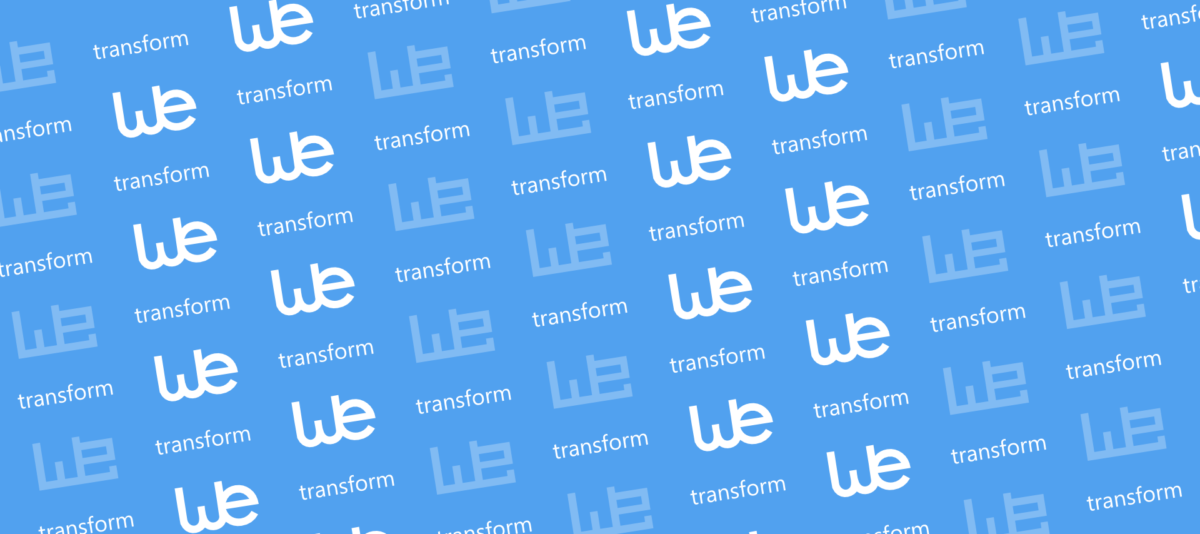
A Modern Website for Modern Solutions
wetransform has grown a lot over the last 5 years.
We have grown in many areas; from the number of customers we help, to the number of teammates we work with. Most importantly, we have grown in our understanding of accessible, interoperable data. We have become familiar with the challenges faced by implementers, and have a clear vision of what the future of environmental data accessibility within the European Union will look like. Even our original tool HALE has grown, becoming hale»studio and hale»connect, tackling complex geodata transformation and all challenges surrounding data publishing and metadata, respectively.
Now, in the spirit of greater accessibility, we want to make sure that everyone can benefit from our hard-won knowledge.
To help make that happen, we have revamped our website.
Here’s what’s new!
Bridging the Knowledge Gaps
The INSPIRE community wants clarity and information to suit different levels of understanding.
The official deadline may have passed two years ago, but for a lot of organisations the INSPIRE implementation slipped through the cracks. Many public sector organisations had other challenges and priorities in times of global pandemics and international tensions. However, with environmental challenges once more in focus, INSPIRE is a priority.
That means some have just started exploring the idea of INSPIRE, while others have already established long-term solutions. This has created a wide spectrum of demand for information, one that we intend to satiate.
For those just starting out – you can find resources that will introduce you to the basics of the INSPIRE directive. These resources will help you to:
- understand the benefits of INSPIRE for your organisation
- know how to kick off the INSPIRE implementation process in your organisation
- learn about all the different factors you will need to consider as you implement INSPIRE
For those with an intermediate understanding of INSPIRE – you can find information relevant to:
- Common implementation woes
- Specific use cases, for example large-scale INSPIRE implementations.
For those with a mature solution – we have seen that INSPIRE is dynamic, and will be embedded deeply in the digital infrastructure of the EU. The real question is, how? That’s a question we have answered, taking into account current digital environments and political initiatives.
To fit the needs of our communities better, we are now focusing on providing stronger, more accessible content. We hope that this change will make the lives of INSPIRE implementers easier. Of course, should there still be open questions, you can always contact us.
Looking to the Future
The needs and wants of citizens are dynamic. Simultaneously, technology is transforming at breakneck speeds in order to cater to these needs and wants better.
INSPIRE is no exception to this trend. Improved interoperability could, after all, save citizens, businesses, and the public sector a great deal of time and money.
As our society becomes more data driven through initiatives like AI, the importance of high-quality data increases. A Spatial Data Infrastructure (SDI) such as INSPIRE, with its global terminologies and comprehensive nature, will be an integral part of future data operations.
However, the SDI in its current form does not yet satisfy our future needs.
That’s where initiatives like Environmental Data Spaces and the Green Deal come in.
Owing to its vast nature, INSPIRE forms the blueprint of these data initiatives.
They all share a common goal of making data more useful and accessible to those with a legitimate interest, so it can be used to make better informed decisions surrounding modern challenges such as climate change, the shrinking of natural habitats, and forest management. With enough well-structured harmonised data available, modern solutions such as artificial intelligence can truly bring about lasting improvements.
The embrace of these ideas is clearly evidenced by momentous occasions such as the German Federal Agency for Nature Conservation (Bundesamt für Naturschutz) investing in our Future Forest project.

Beyond INSPIRE
Apart from INSPIRE, we’re also seeing the rise of other data standards and directives. These standards may be worldwide or particular to certain countries or certain use cases.
For example, the German XPlanung endorses using a single format and information model for all spatial planning, enabling easy exchange of planning data between planning authorities, engineers, and the public. Ideally, it should allow people to receive all relevant information with a single click. So far, 15 organisations have implemented XPlanung with our help.
Another example is the Environmental Noise Directive (END). Introduced in 2002, it is a European legislation aimed at measuring and managing environmental noise in Europe. The END assesses the amount of noise citizens are exposed to, makes the noise assessments open to the public, and supports the reduction and prevention of unacceptable noise levels. The data under this directive must be reported to the EEA as a GeoPackage.
Creating END compliant datasets is actually closely linked to INSPIRE. We have seen that making END compliant GeoPackages is not an easy feat either, and the organisations need support in transforming their shapefiles to GeoPackage. We are, as always, more than happy to lend them our expertise.
As the focus on data-driven decision making expands, so will the need to engineer specific data standards for different use cases. We’re bound to see more data standards and directives in our global quest for high quality data sets and truly substantiated decision-making processes.
wetransform will stay on top of such standards and, you guessed it, will keep posting about them on this new website!


